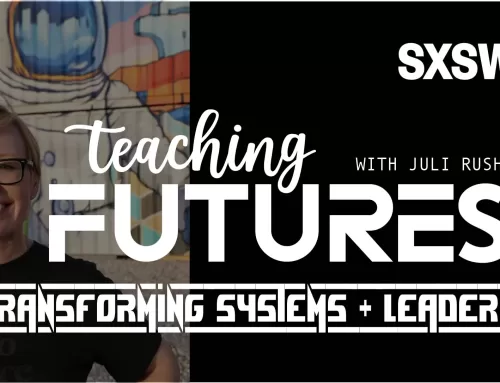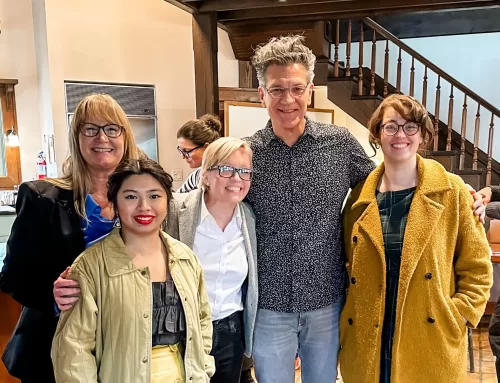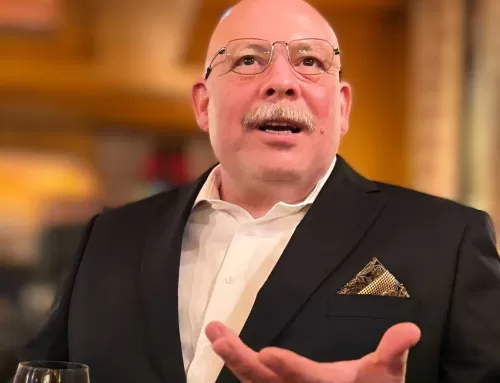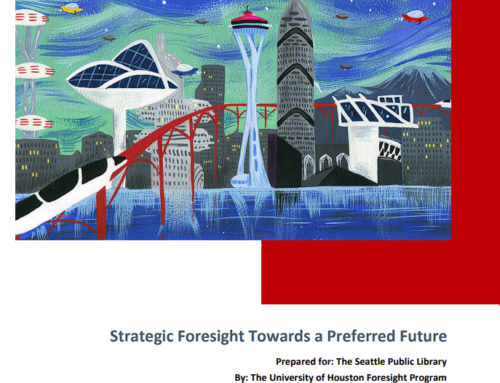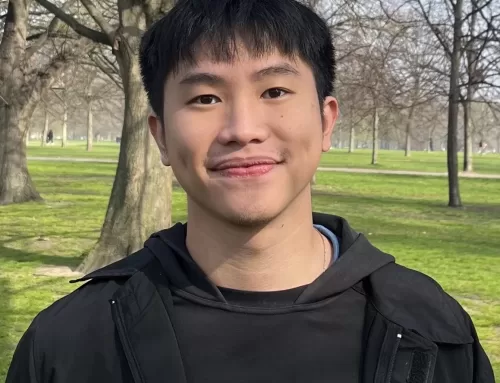Submission by Juli Rush
When I first came to the Foresight program in 2020, I was unsure how I was going to fit into the program or what I’d end up using foresight for in my life. I was thankful to meet several other students who had similar “I’m not sure, but I’m trusting the process” outlooks. We weren’t sure what we’d end up doing with it, but we felt drawn to the program. We knew we needed to be there, even if we weren’t sure why.
 Often when I interview young people, I ask them to tell me what’s not on their LinkedIn account. Tell me the rest, tell me about what you’re passionate about. Sure, you may have gone to school for xyz, but what do you love? I suppose I favor those questions because they’re the ones I’ve spent the past 10 years asking myself.
Often when I interview young people, I ask them to tell me what’s not on their LinkedIn account. Tell me the rest, tell me about what you’re passionate about. Sure, you may have gone to school for xyz, but what do you love? I suppose I favor those questions because they’re the ones I’ve spent the past 10 years asking myself.
I’m an educator. I love learning, which is why when the pandemic showed up, I wanted to learn. I kept asking myself how did this happen? How do we keep it from happening again? The school community I work for is almost entirely made up of medical professionals. I watched them and their families navigate a virus that damaged us not only physically, but also psychologically and emotionally. Our students are still traversing their way out of something that was incredibly hard. Our teachers are, too. As a school, we tried our best to remain open so those parents in the med field could go to work and literally save lives. That also meant our teachers were attempting to bring the best of themselves while also being scared and depleted while the world sorted itself out around this virus. And what comes when we shift out of survival mode and the shock wears off? Grief.
One thing that isn’t on my resume is that my younger sister died of cancer in 2017. She had just turned 30 years old. She was wicked smart – was already a professor at a small liberal arts college in Florida. She and her husband lived with my family while she received treatment at MD Anderson in Houston. Her illness, treatment, and death shifted the trajectory of my life. I was lucky to have spent several years in college with a therapist prior to my sister getting sick and was grateful to be the best version of myself when she died. I learned that death can go well. People can die well. You can survive the grief that comes after.
Something I realized midway through my journey in the Foresight program was that every time the future shifts on us there is grief. Sometimes it is small and even unnoticeable. Sometimes it is so big and scary that we can hardly look at it. As consultants, we’re watching the horizon for these shifts in the future that will undoubtedly come in one fashion or another and we’re asking others to trust us to help them prepare, to see, and to move. I became curious about how well we do that grief piece as those trusted in this process.
Simultaneously with the Foresight program I’ve also completed a grad certificate in Thanatology. I wanted to better understand grief and death. I especially wanted to know how we can pair these two things together – futures and grief. My preferable future includes one where we are more resilient to change, and we do a better job of feeling our feelings. The Future of Grief is heavy. The feelings we experience when someone dies are very similar to the ones we feel when a dream or a hope dies. Like when we lose a job. Or a marriage ends. Or our home floods. And even deeper: we find out this world isn’t welcoming to everyone – their skin color, who they love, or what gender they identify as. And even deeper: that the earth we’re building all our plans and futures on is slowly dying because of us.
Grief is huge. And overwhelming. And scary. But there is a path forward. The people in this program that have become some of my dearest friends are the kinds of people building those paths forward. We are building our preferable futures together, and we’re hopeful. We’re grieving and we’re hopeful.
I graduate in May alongside many of those dear friends. In April, we’ll celebrate together again at Spring Gathering and I’m hopeful for many more Spring Gatherings to come. I’ll continue to be grateful to the teaching faculty and all the other giants who have come before me and keep making Foresight important. Thank you for continuing to invest in this work. For allowing many of us to not just figure out how we fit into futures, but how futures fits into us. For investing in your students who are dreaming big dreams and building big futures.
